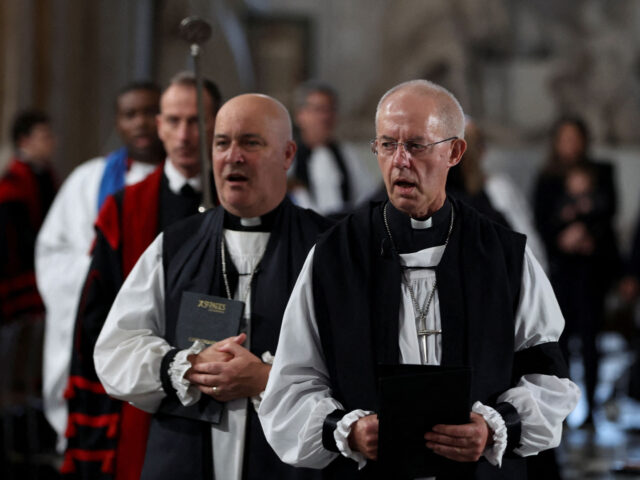The Church of England announced that it has committed £100 million in a reparations-style package to make up for its role in the historical slave trade – a practice which it helped abolish in the Western world.
The Anglican church, which was one of the first established churches to campaign for the abolition of slavery, announced a series of measures on Tuesday that it intends to embark upon to compensate for its historic links to the Transatlantic slave trade.
The move, which came in response to a report commissioned by the Church that detailed “shameful” ties to slavery, will see some £100 million from its coffers handed out on race-based initiatives such as an “impact investment fund” which will seek to create a “better and fairer future for all” but in particular families descended from victims of the slave trade.
This at a time as parish churches, many of them historic buildings, are struggling with upkeep and even retaining members, with some 1,000 having closed in the last 30 years — 400 of them in just the last decade.
More research into the role of the Church in slavery will also be funded by the £100 million, including examining local cathedrals and parishes which may have directly or indirectly benefited from the practice.
Next year, a new oversight group will also be established to work with the Church Commissioners to “ensure this work is done sensitively and with accountability.”
The Archbishop of Canterbury, the Most Reverend Justin Welby, said: “The full report lays bare the links of the Church Commissioners’ predecessor fund with transatlantic chattel slavery. I am deeply sorry for these links. It is now time to take action to address our shameful past.
“Only by obeying the command in 1 John 1:6-7 and addressing our past transparently can we take the path that Jesus Christ calls us to walk and face our present and future with integrity. It is hard to do this at a time when resources in many parishes are so stretched, but by acting rightly we open ourselves to the blessing of God,” he claimed.
Welby has previously come under criticism for inserting his apparent left-wing political sensibilities into Church business on issues ranging from illegal immigration to climate change, even controversially claiming that God is gender neutral.
Though the CoE officially apologised for its historic role in the slave trade in 2006, the grovelling has only continued, with Church leaders issuing a second apology during the resurgence of the Black Lives Matter movement in Britain following a police killing of a black man thousands of miles away in the United States.
Welby himself has also taken to prostrating himself before the woke mob, previously apologising for coming “from privilege and a place of power as a white person in this country” — although he has notably declined to vacate his own influential position to make way for an ethnic minority peer.
The Archbishop would go on to declare that there “is no doubt when we look at our own Church that we are still deeply institutionally racist. Let’s just be clear about that.”
Responding to the announcement of the latest woke move by the established Church of England, Reverend Calvin Robinson, a deacon in the Free Church of England — which sticks to more traditional Christian teachings — said: “Welby apologises again and commits £100m towards woke virtue signalling. The idea of reparations is ridiculous.
“The Christian abolitionists initiated and organised the abolition movement. They ended slavery! This money could be spent funding parishes in dire need of support.”
Robinson, who is of mixed race heritage, went on to note that 19th-century English politician and leading abolitionist William Wilberforce was motivated to end the slave trade “by a desire to put Christian principles into action and to serve God in public life.”
Indeed, following the passage of the Act for the Abolition of the Slave Trade in 1807, which was championed by Wilberforce, the Royal Navy captured an estimated 1,600 slave trade ships, freeing some 150,000 African slaves in the process.
Some 1,587 British servicemen in the West Africa Squadron lost lose their lives fighting to end slavery between 1830 and 1865.
Follow Kurt Zindulka on Twitter here @KurtZindulka

COMMENTS
Please let us know if you're having issues with commenting.